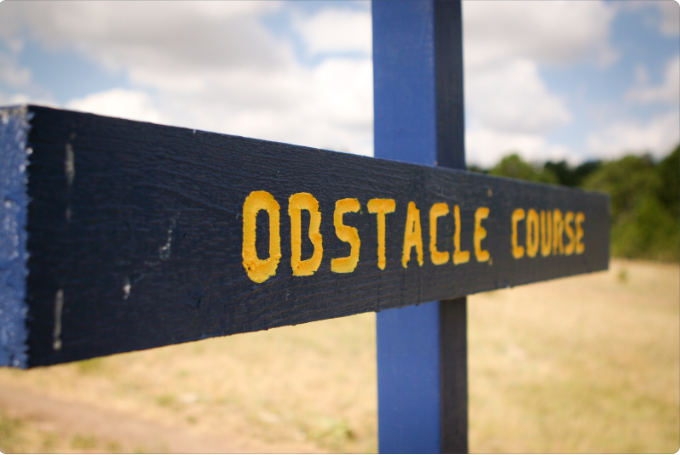Indoor obstacle courses offer a fun and engaging way for kids to stay active and challenge themselves physically.
Creating an indoor obstacle course can seem daunting at first, but with a little creativity and planning, it can be a fun and rewarding activity for both children and adults.
We will explore indoor obstacle course ideas for kids that are easy to set up and can be tailored to suit different age groups and skill levels.
Not only do they provide an opportunity for children to develop their coordination and balance, but they also help to improve their confidence and self-esteem.
Pillow Path:

Create a path using pillows and blankets, and challenge your preschoolers to make it through without touching the ground.
Tunnel Crawl:

Use a large cardboard box or tunnel toy to create a crawl-through obstacle. This activity promotes physical development and spatial awareness.
Related: 20 Exciting Craft Activities for Toddlers and Preschoolers
Balancing Act:

Use cushions or balance beams to create a balance obstacle. Encourage preschoolers to walk across without falling off.
Paper Plate Shuffle:

Place paper plates on the floor and challenge preschoolers to walk across them without stepping off. This activity promotes balance and coordination.
Related: 20 Fun Preschool Learning Activities at Home
Hopscotch:

Use masking tape or chalk to create a hopscotch board on the floor. This activity promotes gross motor skills and coordination.
Bean Bag Toss:

Set up a bean bag toss game using buckets or containers. This activity promotes hand-eye coordination and counting skills.
Hula Hoop Hop:

Use hula hoops as a jumping obstacle. Encourage preschoolers to hop in and out of the hoops without touching them.
DIY Climbing Wall:

Create a climbing wall using foam tiles or a soft surface. This activity promotes physical development and gross motor skills.
Stuffed Animal Maze:

Create a maze using stuffed animals or soft toys. This activity promotes spatial awareness and problem-solving skills.
Animal Crawl:
Encourage preschoolers to crawl like different animals, such as a bear or a crab, to promote physical development and gross motor skills.
Limbo:

Use a broomstick or pole to create a limbo obstacle. Encourage preschoolers to bend backward and pass under the stick without touching it.
Shape Match:

Use cut-out shapes or foam tiles to create a shape-matching obstacle. Encourage preschoolers to match the shapes and place them in the corresponding slots.
Scavenger Hunt:

Hide small toys or objects around the room and create a scavenger hunt obstacle. Encourage preschoolers to find all the items on the list.
Musical Chairs:

Play a game of musical chairs using chairs or cushions. This activity promotes listening skills and turn-taking.
Bubble Wrap Hop:
Use bubble wrap as a hopping obstacle. Encourage preschoolers to hop from bubble to bubble without popping them.
Memory Lane:

Use pictures or objects to create a memory game obstacle. Encourage preschoolers to match the pictures or objects hidden behind cards.
Yoga Poses:

Use yoga mats to create a series of yoga poses as an obstacle course. This activity promotes physical development and mindfulness.
Pirate Treasure Hunt:

Use cardboard boxes or blankets to create a pirate-themed treasure hunt obstacle course. Encourage preschoolers to search for treasure while crawling and jumping through obstacles.
Shape Sorting:

Use different shapes and containers to create a shape-sorting obstacle course. Encourage preschoolers to sort the shapes into the correct containers.
Bowling:

Use soft balls or stuffed animals to create a bowling obstacle course. Encourage preschoolers to knock down the “pins” using a ball or object.
Related: Easy Educational Activities for Preschoolers
Conclusion
In conclusion, indoor obstacle courses can be a fantastic way for children to stay active, improve their coordination, and have fun at the same time.
With the right equipment and creativity, there are endless possibilities for designing obstacle courses that cater to different age groups and skill levels.
By incorporating obstacles that challenge their balance, agility, and strength, children can develop their physical abilities and boost their confidence in a safe and controlled environment.


